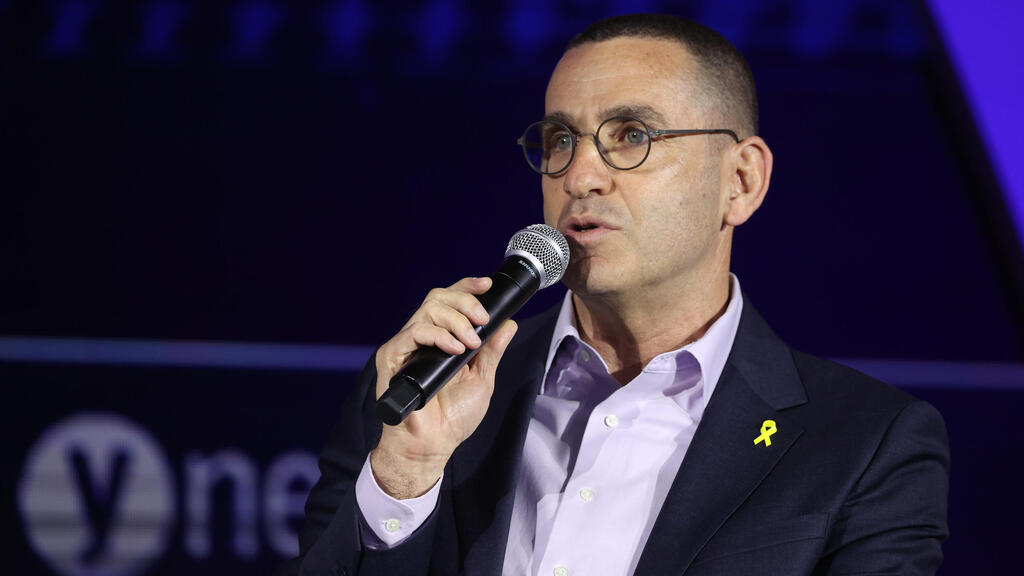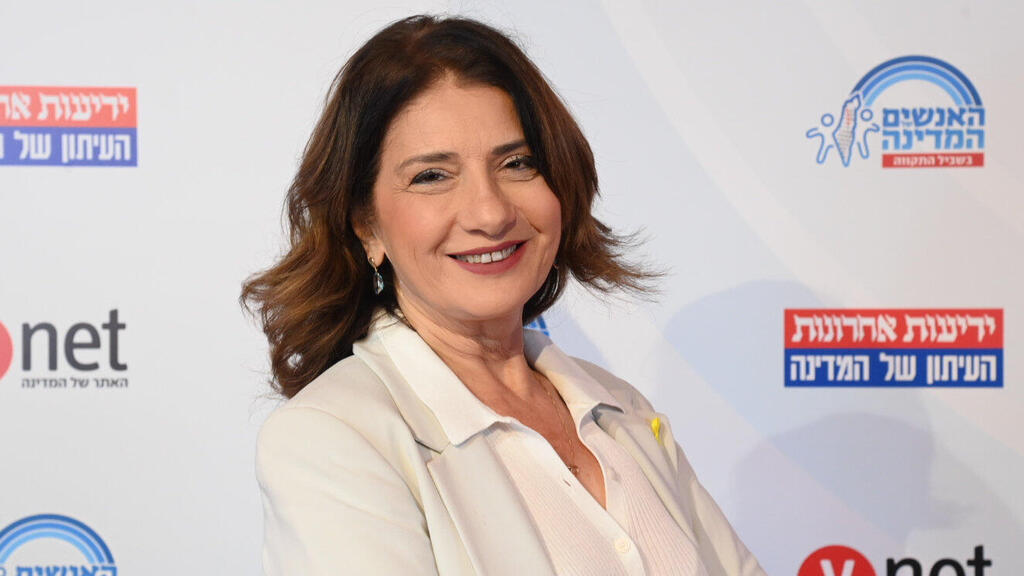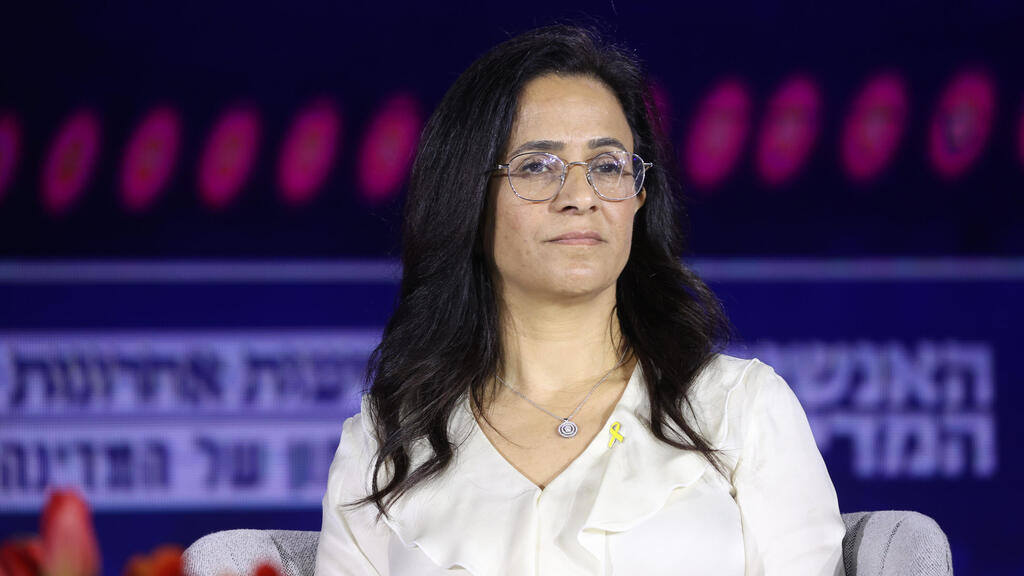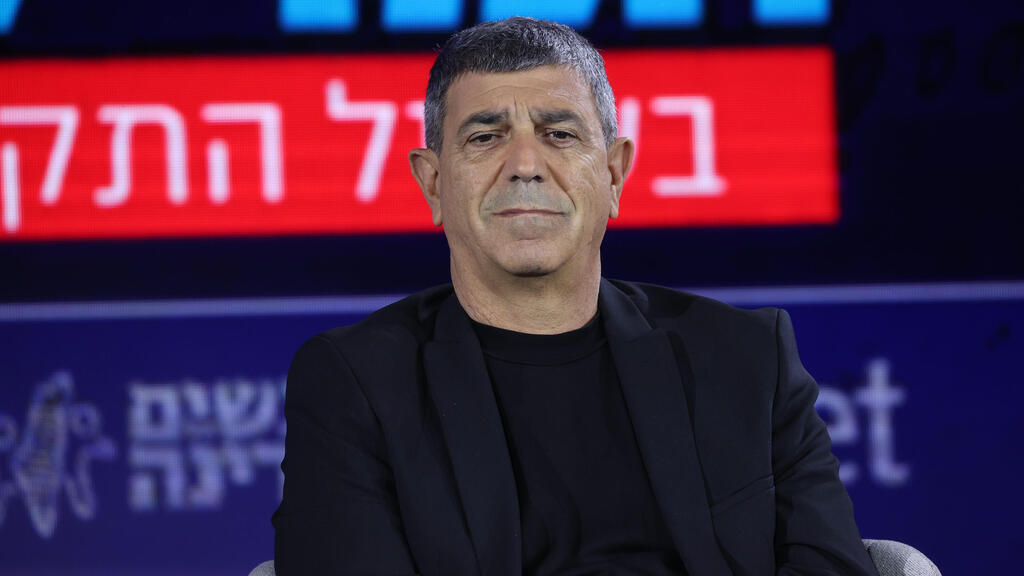Getting your Trinity Audio player ready...
Ynet's People of Israel conference, a panel of local leaders and professionals called for urgent government support and bureaucratic freedom to help restore the nation’s physical, emotional and communal resilience after a year of war and crisis faced by Hamas’ October 7 attack.
The discussion, moderated by Ynet’s Alexandra Lukash, brought together Ido Sharir, CEO of Reuth Rehabilitation Hospital; Liat Shochat, mayor of Or Yehuda; Karen Tal, director-general of the Amal Educational Network; and Yaron Ohayon, head of the land development division at KKL-JNF.
‘We’re treating a national trauma’
Sharir described how his hospital, like many others, responded in the immediate aftermath of October 7 by expanding services despite limited resources. “We're doing the best we can with what we have,” he said, noting that their new project — a hospital for trauma victims — is meant to address the long-term impact of war, terrorism and even car accidents.
“The need was already huge before the war,” he added. “Now it's dramatic. We're not talking about short-term treatment but a mission that will be with us for many years.”
Despite deep cooperation with the Tel Aviv municipality, Sharir said the state had yet to step up. “We work almost entirely without government involvement. We need the government to recognize the scale of what’s happening and help.”
‘The education system is a frontline too’
Karen Tal, who leads one of Israel’s largest school networks, said October 7 shattered more than physical structures. “The idea of home collapsed — north, center or south, it didn’t matter,” she said. “We had to ask our students, ‘What are you feeling?’”
Students, she said, are not only dealing with trauma but also searching for identity. “We’re seeing pupils from every background — secular, religious, Jewish, Arab, Bedouin — asking who they are. And they want to keep living. That gives us hope.”
Get the Ynetnews app on your smartphone: Google Play: https://bit.ly/4eJ37pE | Apple App Store: https://bit.ly/3ZL7iNv
Tal stressed that teachers and principals have become emotional anchors. “We must stop asking them to simply execute policy,” she said. “We need to ask them: what do you need?”
As divisions deepen in Israeli society, Tal stressed that schools must foster unity. “We tell our students: ‘don’t believe what you see on TV. The politicians turn us against each other. You are the real leaders.’”
She said her network is working on deep identity-building processes and giving students and educators tools to deal with grief, confusion and civic questions.
‘The government needs to let us work’
Mayor Liat Shochat of Or Yehuda called on the government to free local authorities from red tape. “Since the COVID-19 pandemic and even more so after October 7, we’ve learned that when citizens need help, they come to us — the mayors. And we’re available by phone, by messenger, any way they need.”
“But we’re limited,” she continued. “Some 50% of Or Yehuda is still without proper shelters, even though we’re close to Ben-Gurion Airport. Those who could afford it bought protection. The rest live with the fear their homes won’t survive an attack.”
Shochat said rebuilding efforts are stuck in endless bureaucracy, with national decision-making out of sync with daily life. “Give us freedom. Give us the tools. We’ll do the rest.”
‘We moved entire communities in months’
Yaron Ohayon of KKL-JNF spoke about the organization’s role in relocating families from hard-hit communities like Kibbutz Kfar Aza and Kibbutz Re’im. “We planned and built housing across Israel in less than six months,” he said. “We did it respectfully, with dignity. And now these places are full of life — 5,000 people visit each day.”
KKL has so far invested around NIS 100 million ($26.5 million) in rebuilding the north and south. Ohayon urged the state to join efforts already underway. “We’re providing a place of hope,” he said. “If the government steps in, together we can build something truly whole.”
As the panel closed, the message was clear: the people on the ground — teachers, doctors, municipal leaders — have already proven their ability to respond. What they need now is support and autonomy.
“We’re not waiting,” Tal concluded. “In the middle of war and insanity, our schools are islands of sanity. Our students launched a capsule into space. That’s the spirit of Israel. Now give us the freedom to keep it alive.”





